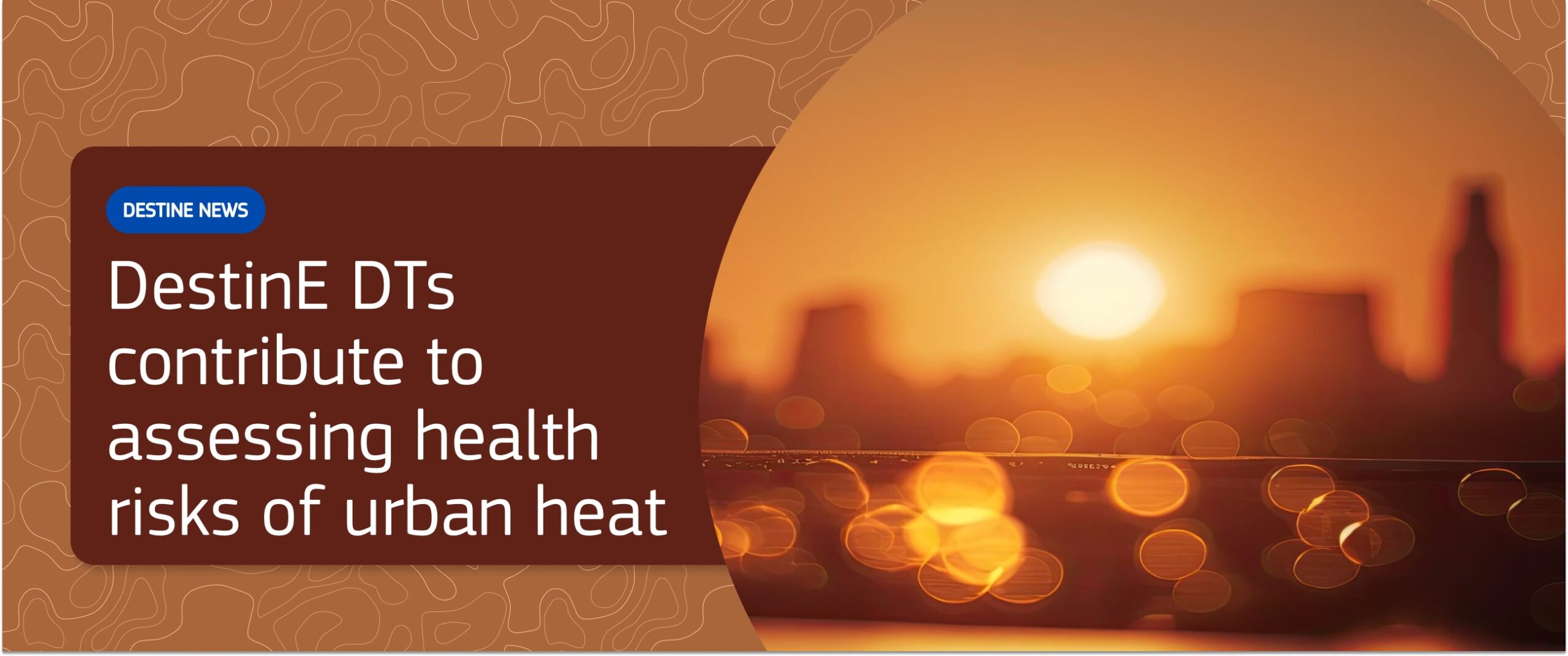DestinE digital twins contribute to assessing health risks of urban heat through AI

NOTE: This is an excerpt of an article that was originally published on the ECMWFEuropean Centre for Medium-Range Weather Forecasts More website.
The latest data shows our changing climate is characterised by more frequent, longer and intense heatwaves. These pose significant challenges in our urbanised societies: from increased heat-related mortality rates to disparities in household energy poverty, heatwaves affect public health in multiple ways.
In an effort to provide accessible urban heat information, a new EU-funded contract has just kicked in. As part of it, +Atlantic CoLAB – a Portuguese non-profit collaborative laboratory – will explore how combining digital twin data from DestinE with AI and machine learning can help assess rising heat-related health risks in metropolitan areas.
Read the full article to learn more about how the DestinE digital twins will help us address the health risks caused by urban heat.